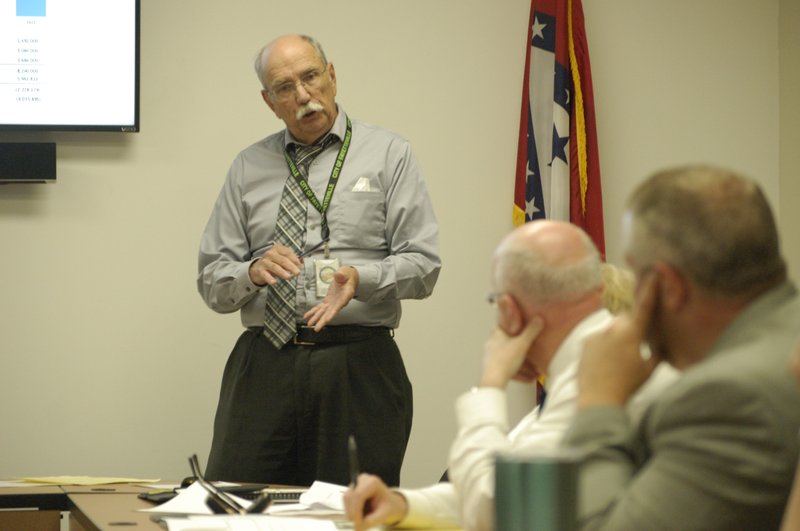FAYETTEVILLE -- City financial officers have taken an especially frugal approach to next year's general fund budget to have more money for police and firefighter raises.
The general fund makes up about 30 percent of the overall budget. The 2017 budget was $155 million.
Next meeting
What: Fayetteville City Council
When: 5:30 p.m. Tuesday
Where: Room 219, City Hall, 113 W. Mountain St.
Most of the general fund, about 80 percent, is dedicated to personnel costs. The fund includes the library, parks activities, equipment for police and fire and office supplies. Separate parts of the budget cover operations and maintenance for water and sewer, streets, recycling and trash collection and the airport.
Last year, the City Council adopted a general fund budget of $43,162,000. The proposed general fund budget for 2018 is $45,556,000. The $2.4 million increase is the difference between what the council planned to spend this year and anticipated costs for 2018.
The biggest cost difference, by far, between 2017's budget and proposed 2018 expenses is personnel. The City Council approved especially high pay raises this year, Chief Financial Officer Paul Becker said.
A pay study released in March showed city employees significantly trail the regional market rate. Such a study is done every four years, but this year's results were especially surprising, officials have said.
Merit, or nonuniformed, employees trailed 22 comparable cities in Arkansas and surrounding states by 11.5 percent. Police were 15.6 percent behind and firefighter pay lagged by 12.5 percent. Uniformed employees are on a step-based pay plan.
The City Council approved a plan adopting 100 percent of the raises the Johanson Group recommended for merit employees and 25 percent of the consultants recommendation for police and fire. A Pay Plan Committee was formed, putting city administration at the same table with police and fire representatives, to come up with ways to get uniformed employees more money.
That pay plan means about $1.5 million more has to be put toward personnel for 2018, Becker said.
"There were things and requests that were made that we didn't fund because we felt that that was our top priority," he said. "Coming from the mayor and council, the top priority was talked about as looking at the salary service and potential raises for next year. With that in mind, we kept our estimates as conservative as possible."
Capt. Jimmy Vinyard, the Fire Department representative on the Pay Plan Committee, said without the administration changing the current flow of money or wanting to raise taxes, being conservative is the only option.
"They've stated quite often that their No. 1 asset is their employees, so I guess at that point they'd be moving toward confirming that situation," he said.
The city uses sales tax growth as a guiding principal for pay increases. Every spring, raises are figured using a combination of reserve and surplus revenue.
Most of the revenue for the general fund, 60 percent, comes from sales tax. Becker projected the city will end the year with $27,522,179 in sales tax revenue, about 5.5 percent higher than 2016's final total of $26,079,889. He forecasts a 2 percent growth of $28,073,000 next year to be purposefully conservative.
Another chunk of revenue for the general fund, property taxes, should generate about 6 percent more next year, from $3.3 million budgeted for 2017 to $3.5 million, because of increased assessed value. The city's millage levy likely won't change. The City Council will vote Tuesday on whether to approve the 2.3 mills for general fund operations, 0.8 mills for police and fire pension and 3.7 mills for the library, the same rates as last year.
A Fayetteville resident living in a home with a $200,000 assessed value pays $2,298 in property taxes annually. That rate trails Bentonville's $2,472 and Rogers' $2,404 annual totals at the same value, but is more than Springdale's $2,188 annual rate, according to figures from the Arkansas Assessment Coordination Department.
The City Council has scheduled its annual budget discussion for Nov. 18.
NW News on 09/14/2017
